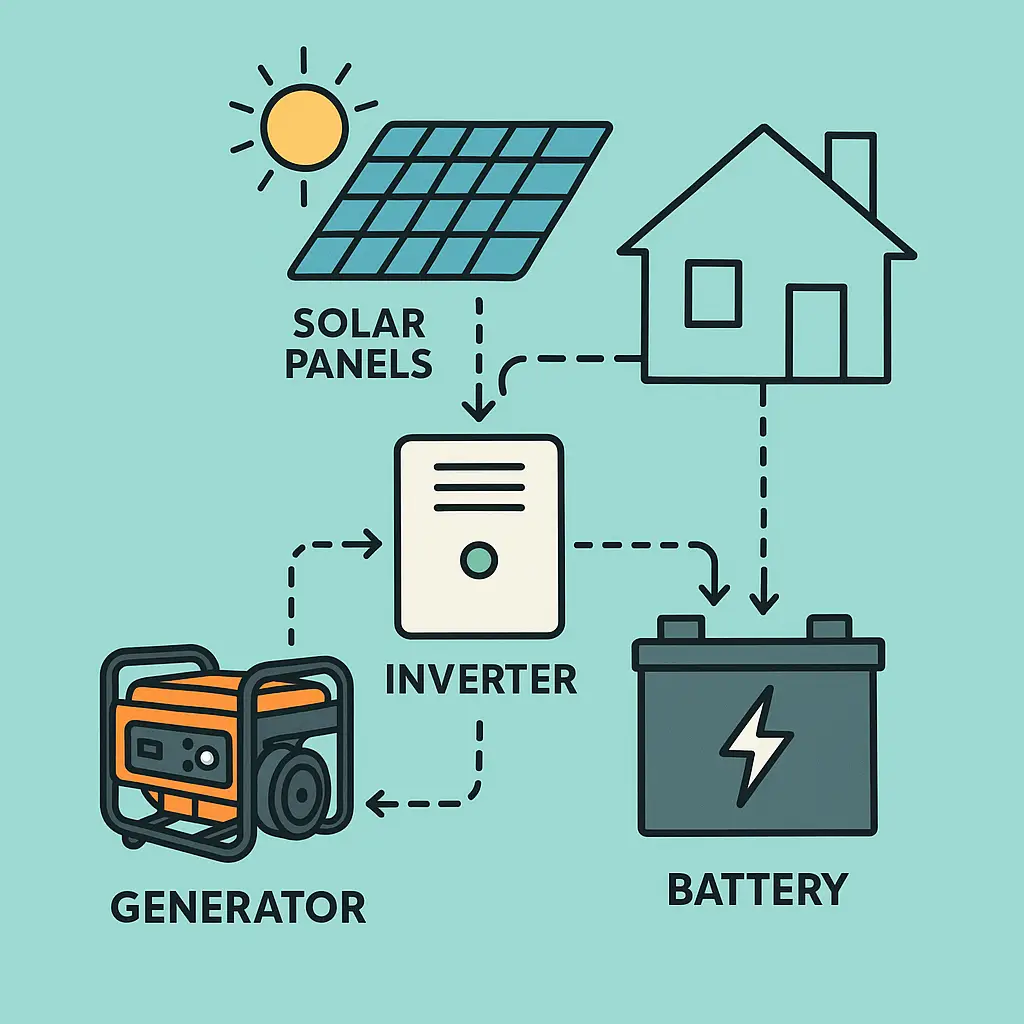⚙️ OffGrid Battery Systems: A Comprehensive Guide

Living off-grid offers independence and sustainability, but it requires a reliable power system. An off-grid generator battery system combines renewable energy sources with backup generators to ensure uninterrupted power supply.
Understanding Off-Grid Generator Battery Systems
An off-grid generator battery system typically includes:
- Solar Panels: Capture energy from the sun.
- Battery Bank: Stores energy for use when solar power is unavailable.
- Inverter/Charger: Converts stored DC power to AC for household use and manages charging.
- Backup Generator: Provides power during extended periods of low solar input or high energy demand.
Integrating a generator ensures that your battery bank remains charged, maintaining power availability during unfavorable weather conditions or increased energy usage.
🔌 How Generators Integrate with Battery Systems
Generators can be connected to battery systems in two primary ways:
- Through an Inverter/Charger:
- The generator supplies AC power to the inverter/charger.
- The inverter/charger converts AC to DC to charge the battery bank.
- Once batteries are charged, the inverter can switch back to solar power.
- Direct Connection with Automatic Transfer Switch (ATS):
- An ATS detects when battery levels are low and automatically starts the generator.
- The generator powers the load and charges the batteries simultaneously.
- Once batteries reach a set charge level, the ATS switches back to battery power and shuts down the generator.
Implementing an off-grid generator battery system with an ATS enhances efficiency and reduces the need for manual intervention.
⚡ Benefits of Off-Grid Generator Battery Systems
- Reliability: Ensures continuous power supply regardless of weather conditions.
- Energy Independence: Reduces reliance on the grid and fossil fuels.
- Cost Savings: Minimizes fuel consumption by using the generator only when necessary.
- Scalability: Systems can be expanded to meet growing energy needs.
🛠️ Choosing the Right Components
When designing your off-grid generator battery system, consider the following:
- Battery Type: Lithium-ion batteries offer longer lifespan and higher efficiency compared to lead-acid batteries.
- Generator Size: Ensure the generator can handle both the load and battery charging requirements.
- Inverter Capacity: Select an inverter that matches your energy consumption patterns.
- Automation Features: Incorporate systems with AGS (Automatic Generator Start) for seamless operation.
📈 Optimizing Your Off-Grid Power System
To maximize the efficiency of your off-grid generator battery system:
- Regular Maintenance: Keep all components in good working condition.
- Energy Monitoring: Use monitoring tools to track energy production and consumption.
- Load Management: Prioritize essential loads to extend battery life.
- System Upgrades: Stay updated with the latest technologies to enhance performance.
Implementing an off-grid generator battery system is a strategic move towards sustainable and reliable energy independence. By carefully selecting and integrating the right components, you can ensure a consistent power supply tailored to your off-grid lifestyle.
If you would like help from an installer please get an off grid battery system quote in Australia here

